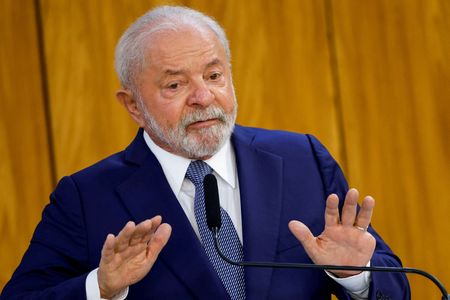 1
1 1
1
BRASILIA (Reuters) – Brazil’s central government primary budget surplus dropped by 48.3% in April in real terms from the same period last year, Treasury figures showed on Tuesday, on the back of increased spending.
The central government, including the Treasury, central bank, and social security, recorded a primary surplus of 15.604 billion reais ($3.12 billion) in the month.
While there was 8.1% real growth in expenditures, net revenues declined 1.8%, the Treasury said.
From January to April, the primary surplus fell 43% compared to the corresponding period in 2022, reaching 47.165 billion reais.
Government spending has risen mainly due to more robust monthly welfare aid Bolsa Familia following congressional approval for breaching the constitutional spending cap and increasing social expenses as President Luiz Inacio Lula da Silva promised during his campaign last year.
In their turn, revenues have declined after experiencing substantial benefits last year from surging commodity prices.
The primary surplus over the 12 months stands at 0.22% of GDP. When presenting new fiscal rules, the government has expressed its intention to achieve a primary deficit equivalent to 0.5% of GDP this year.
($1 = 5.0033 reais)
(Reporting by Marcela Ayres; Editing by Chris Reese and Mark Porter)